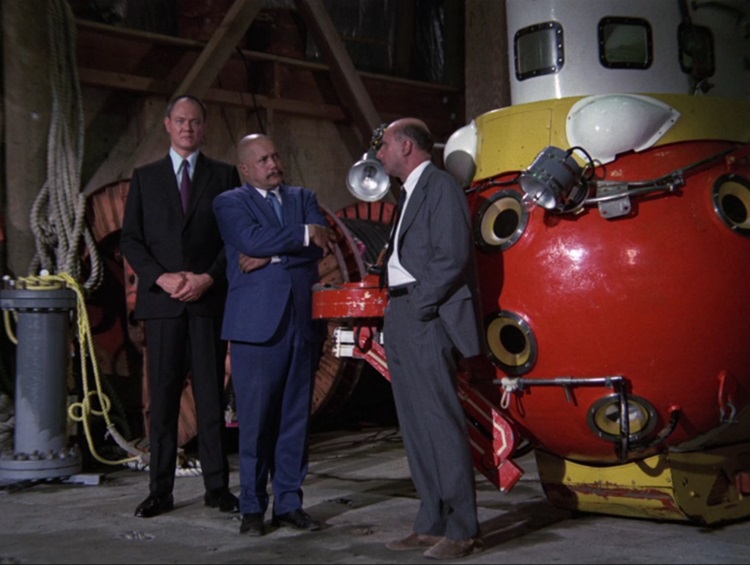 I’ve made no secret that I love a good bad guy, someone to really make our good guys work with their nefarious, sometimes elaborate, plots. I make a distinction between villains and antagonists. Antagonists are the every day assholes that make a protagonist’s life more difficult. Villains do that, too, but typically less often and with a lot more razzle dazzle.
I’ve made no secret that I love a good bad guy, someone to really make our good guys work with their nefarious, sometimes elaborate, plots. I make a distinction between villains and antagonists. Antagonists are the every day assholes that make a protagonist’s life more difficult. Villains do that, too, but typically less often and with a lot more razzle dazzle.
Here are five of my favorite villains in no particular order. Yes, I realize there are no women on this list. Maybe next time. Like I said, I do enjoy my villains.
Wo Fat (Hawaii Five-O)- I think it’s no surprise that this Chinese operative makes the list. He vexed Steve McGarrett for 12 seasons, always managing to elude justice until the very last episode of the series. Khigh Dhiegh plays the character with a sophistication and refined ruthlessness that plays well with Jack Lord’s upright lawman in the scenes they share, but makes for a believable, formidable foe even when they don’t cross paths. Wo Fat is a smart, cultured man with high expectations who isn’t afraid to make long-term plans, like investing YEARS into a plot to frame Steve. That’s the kind of job dedication you don’t get from your average criminal. He’s got an endless supply of henchmen, his own little submarine, and at least two doubles that we know about. He’s also got that drama kid drive for the theatrical. His plans never fail to be grand, even when they don’t need to be. He’s willing to go that extra mile to make it worth all of our whiles.
Dr. Miguelito Loveless (The Wild Wild West)- My favorite 19th century evil genius. I’ve written about Dr. Loveless in the past, so of course he’s going to end up on my list. Michael Dunn brought a charm to the character that elevated him to arch rival status. He took a certain joy and pride in pursuing his goals, and of course his goals involved becoming ruler of his own kingdom. Whether he was after California, the United States, or the world, Dr. Loveless’s scheme was sure to be as diabolical as it was eccentric. And he’s not going to spare any expense when trying to get rid of Jim West and Artemus Gordon. Hell, he tried to give West a premature burial at sea once. He also faked his own death. Dr. Loveless had a flair for the dramatic that even the biggest men couldn’t best.
Memmo Fierro (CSI: Miami)- A show as bonkers as CSI: Miami could get needed a recurring villain with some pizzazz. Enter Memmo Fierro. A member of the Mala Noche gang, he was first introduced in the fourth season as Marisol Delko Caine’s killer. He could have easily been a one-off character, but Memmo had style. And a lot of tattoos. He’s inked from the chin down and I’m sure that he somehow had more every time he appeared onscreen. Anyway, despite being put in prison, Memmo continued to be a thorn in Horatio Caine’s side thanks to his ability to escape prison for reasons ranging from finding out his daughter was being mistreated in foster care to exacting some Mala Noche revenge. And if that meant disguising himself as an old white man, then baby, he was all in. The interesting thing about Memmo is that he started as a ruthless killer, but every subsequent appearance reveals him to be more than that. Robert LaSardo gave dimension to what could have been a one-dimensional character, a bit of humanity to the cold blood killer. He’s never really redeemed, but when Horatio declines to take the opportunity to get rid of him once in for all, you understand why. And just because there’s a sort of…truce?…between the two men, doesn’t diminish Memmo in the least. He’s still bad ass. And probably scheming.
Michael (Stargate: Atlantis)- One of my favorite things about Stargate: Atlantis is how often the peril our heroes face is their own damned fault. The living embodiment of just because you can doesn’t mean you should is Michael, a Wraith the Atlantis crew captured and then turned into a human. It probably would have worked out fine if they could have kept up the “Oh, you’re just a soldier with amnesia” routine, except Michael found out who he really was and saw footage of his torture and transformation. It should come as no surprise that he didn’t take it well. Connor Trineer does an amazing job at portraying the pain of the betrayal that pushed Michael over the edge. Michael’s escape led to him reverting to something of a Wraith/Human hybrid that wasn’t accepted by anyone, so he decided to just fuck shit up. His grandest plan was to create his own race of Wraith/Human hybrids, but he did also manage to take over Atlantis once. Then again, who didn’t? We might not agree with what Michael does, but we all understand exactly why he’s doing it. And even though he was presumed dead before the series came to an end, you have to think that maybe…just maybe…we’d see him again.
King Tut (Batman)- Like I could make this list without naming a Batman villain. It might not be the popular choice with Joker, Penguin, Catwoman, and Riddler around, but King Tut is my guy. First of all, he’s not actually a villain. He’s an Egyptology professor who gets hit on the head and becomes one of Batman’s most theatrical foes, which given the Gotham City bad guys, is no easy feat. It’s Batman, so of course the plots have to be over the top, bordering on ridiculous, but when executed by a big man who thinks he’s a long dead Egyptian ruler with a penchant for one-liners and tantrums, well, they’re just that much more over the top. In the hands of Victor Buono, this baddie chewed scenery like he was at an all you can eat buffet and the dining was too good. King Tut could never best the Caped Crusader and Boy Wonder, but he will always be the royal ruler of camp.
As always, if you don’t like my list, feel free to make your own.
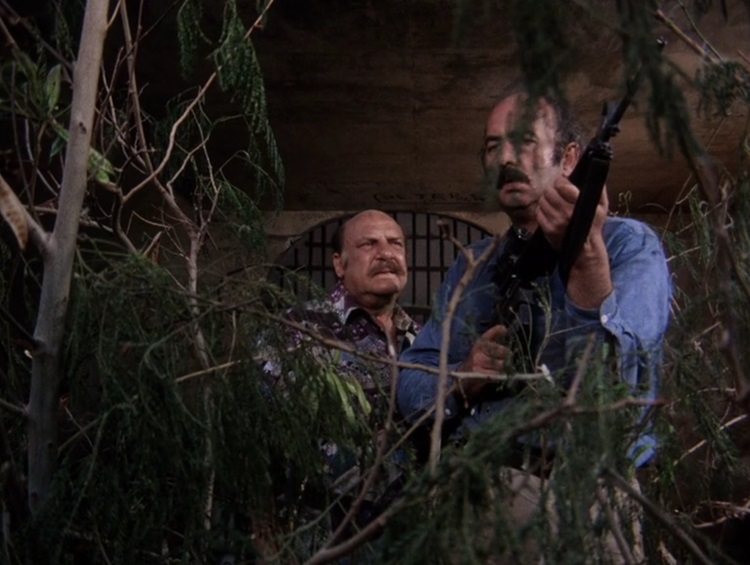 Minor trigger warning for mentions of sexual assault.
Minor trigger warning for mentions of sexual assault. I
I  As a day job, I work as a clerk at the local library. We have something called Reader’s Advisory, which is one of the stats we keep to show our usefulness to the community and therefore justify our existence and budget and financial requests. Specifically, Reader’s Advisory is when we recommend books or movies or TV shows or other items in our collection to our patrons. This sometimes comes from us knowing our regular patrons and their reading/viewing habits well enough that when we see a new item come in, we automatically recommend it to them. Or in the case of certain patrons (or former coworkers) we just put it on hold for them.
As a day job, I work as a clerk at the local library. We have something called Reader’s Advisory, which is one of the stats we keep to show our usefulness to the community and therefore justify our existence and budget and financial requests. Specifically, Reader’s Advisory is when we recommend books or movies or TV shows or other items in our collection to our patrons. This sometimes comes from us knowing our regular patrons and their reading/viewing habits well enough that when we see a new item come in, we automatically recommend it to them. Or in the case of certain patrons (or former coworkers) we just put it on hold for them.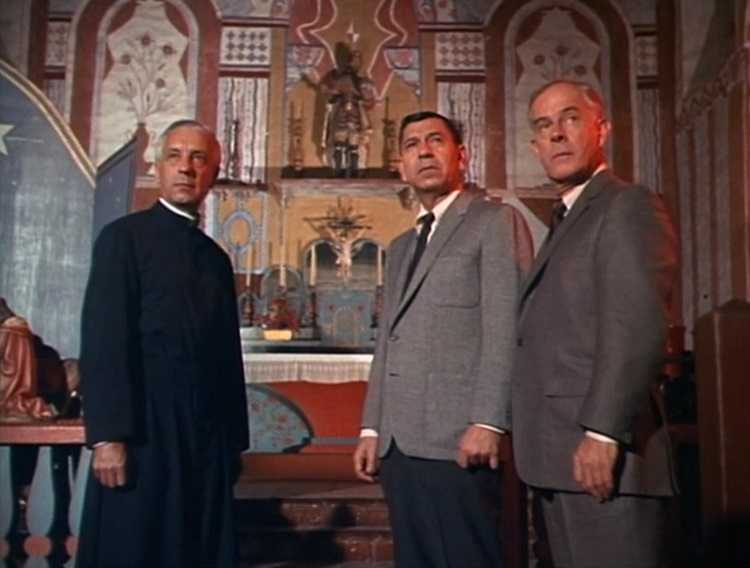 I’m not the biggest fan of Christmas (though I do love a holiday with a theme), but I do have my favorite
I’m not the biggest fan of Christmas (though I do love a holiday with a theme), but I do have my favorite 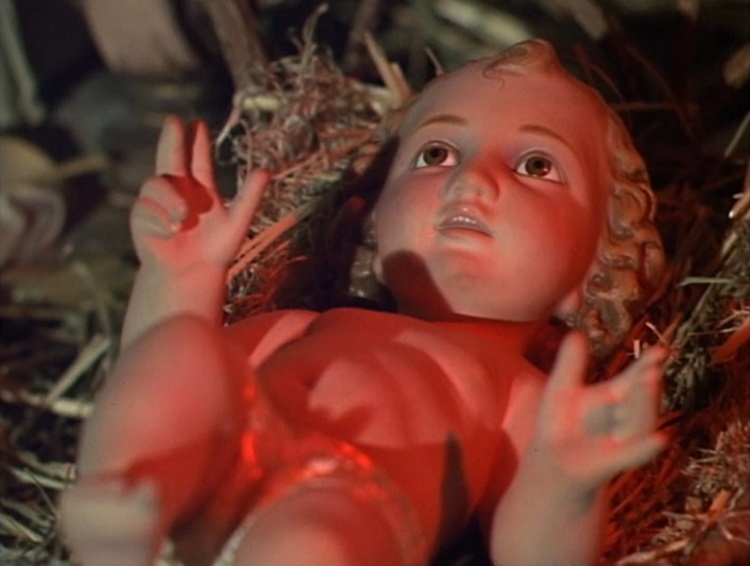 While they wait for the call from the front desk man that Claude has returned, Friday and Gannon continue to check pawn shops in the hopes of finding the baby Jesus.
While they wait for the call from the front desk man that Claude has returned, Friday and Gannon continue to check pawn shops in the hopes of finding the baby Jesus.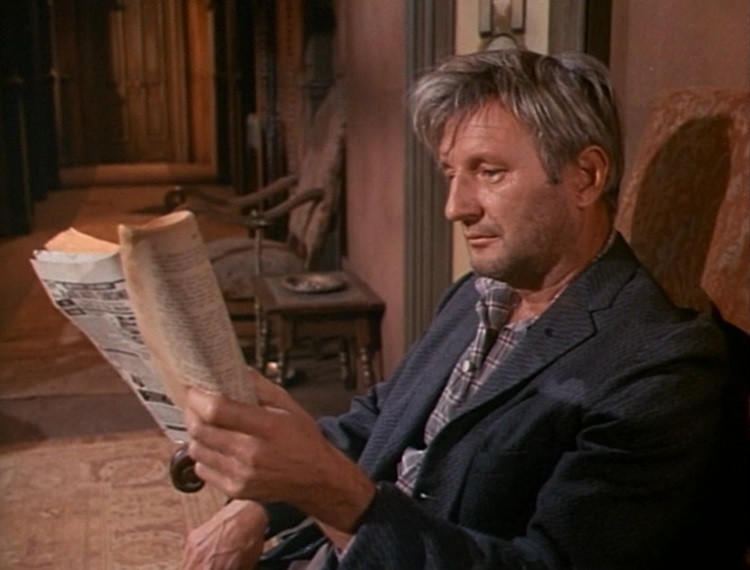 Friday and Gannon finally get their opportunity to interrogate Claude in sort of a sad scene. Claude thinks they’re questioning him about a car he was allowed to borrow, but this time he didn’t ask first. When questioned about the bundle he was taking out of the church, he explains that it was his other pair of pants that he had fixed for the Christmas show at the men’s hotel. It’s established early on that Claude has a rap sheet, but it’s made pretty clear that this guy has given up his criminal ways (minus taking a car without explicit permission) and has fallen into what Friday and Gannon might consider a pathetic life, though there’s something sweet about how much the Christmas show means to him and the other men at the hotel.
Friday and Gannon finally get their opportunity to interrogate Claude in sort of a sad scene. Claude thinks they’re questioning him about a car he was allowed to borrow, but this time he didn’t ask first. When questioned about the bundle he was taking out of the church, he explains that it was his other pair of pants that he had fixed for the Christmas show at the men’s hotel. It’s established early on that Claude has a rap sheet, but it’s made pretty clear that this guy has given up his criminal ways (minus taking a car without explicit permission) and has fallen into what Friday and Gannon might consider a pathetic life, though there’s something sweet about how much the Christmas show means to him and the other men at the hotel.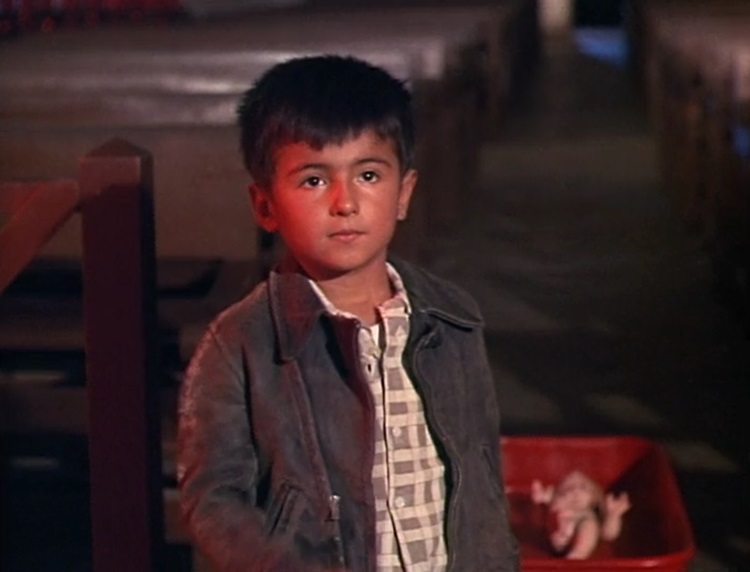
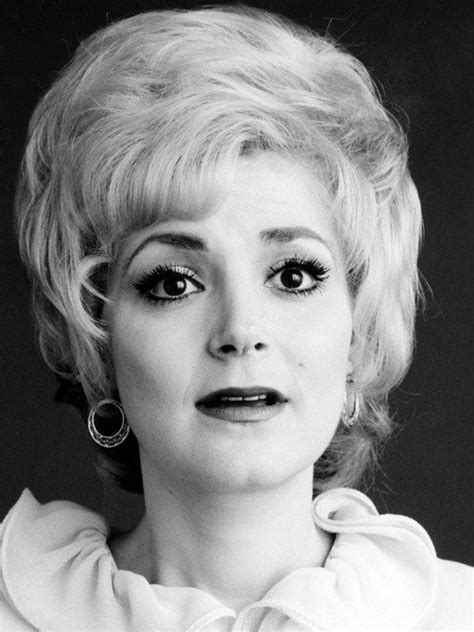 There’s something about a pretty woman with a Brooklyn accent that catches the attention. Or at least my attention. Candice Azzara fits this bill perfectly. Her sweet face and sweet voice makes for a perfect combo, especially when she’s a tough cookie.
There’s something about a pretty woman with a Brooklyn accent that catches the attention. Or at least my attention. Candice Azzara fits this bill perfectly. Her sweet face and sweet voice makes for a perfect combo, especially when she’s a tough cookie. She also played a money-focused woman in an episode of Murder, She Wrote as well. In the episode “Mr. Penroy’s Vacation”, which also happened to be Ron Masak’s first episode as Sheriff Metzger, Ms. Azzara plays the “wife” of dead man Mr. Penroy. Yes, wife is in quotes for a reason. As it turns out, she’s actually the wife of a train robber who ran out on her. He was in Cabot Cove to get his split of the money, and she was there to make sure she got her cut, too. Fun fact: despite her three appearances on Barney Miller and her onscreen husband Don Calfa’s seven appearances, they never crossed paths on that show. (She did appear with the other Barney Miller frequent flyer Oliver Clark in an episode, though.)
She also played a money-focused woman in an episode of Murder, She Wrote as well. In the episode “Mr. Penroy’s Vacation”, which also happened to be Ron Masak’s first episode as Sheriff Metzger, Ms. Azzara plays the “wife” of dead man Mr. Penroy. Yes, wife is in quotes for a reason. As it turns out, she’s actually the wife of a train robber who ran out on her. He was in Cabot Cove to get his split of the money, and she was there to make sure she got her cut, too. Fun fact: despite her three appearances on Barney Miller and her onscreen husband Don Calfa’s seven appearances, they never crossed paths on that show. (She did appear with the other Barney Miller frequent flyer Oliver Clark in an episode, though.) We all know how enamored I am with cops shows, particularly cop shows from the ’70s, but there’s a certain genre of copaganda episode, which seemed to be done often in the ’70s, that just hits me the wrong way every time.
We all know how enamored I am with cops shows, particularly cop shows from the ’70s, but there’s a certain genre of copaganda episode, which seemed to be done often in the ’70s, that just hits me the wrong way every time. I was initially inspired to write this post by Miss Simpson in the Season 5 Hawaii Five-O episode “Death Is a Company Policy”, and what I was actually going to confess was that I liked ruthless women. Miss Simpson was a representative of a criminal enterprise so vast it oversaw the work of numerous smaller scale criminal bosses. It’s at first thought that Miss Simpson is nothing more than an accountant sent to audit the criminal books of one of their branch managers, Piro Manoa. However, as the episode progresses, we come to understand that Miss Simpson is more than just an accountant. She’s an important part of their organization and makes the tough, crucial decisions when she has to.
I was initially inspired to write this post by Miss Simpson in the Season 5 Hawaii Five-O episode “Death Is a Company Policy”, and what I was actually going to confess was that I liked ruthless women. Miss Simpson was a representative of a criminal enterprise so vast it oversaw the work of numerous smaller scale criminal bosses. It’s at first thought that Miss Simpson is nothing more than an accountant sent to audit the criminal books of one of their branch managers, Piro Manoa. However, as the episode progresses, we come to understand that Miss Simpson is more than just an accountant. She’s an important part of their organization and makes the tough, crucial decisions when she has to. I’ve written quite a few posts in my Rerun Junkie Guest Star series, so I’m obviously long overdue to begin a series about the Rerun Junkie Writers. After all, without the writers, those guest stars that I love and adore have nothing to say.
I’ve written quite a few posts in my Rerun Junkie Guest Star series, so I’m obviously long overdue to begin a series about the Rerun Junkie Writers. After all, without the writers, those guest stars that I love and adore have nothing to say.